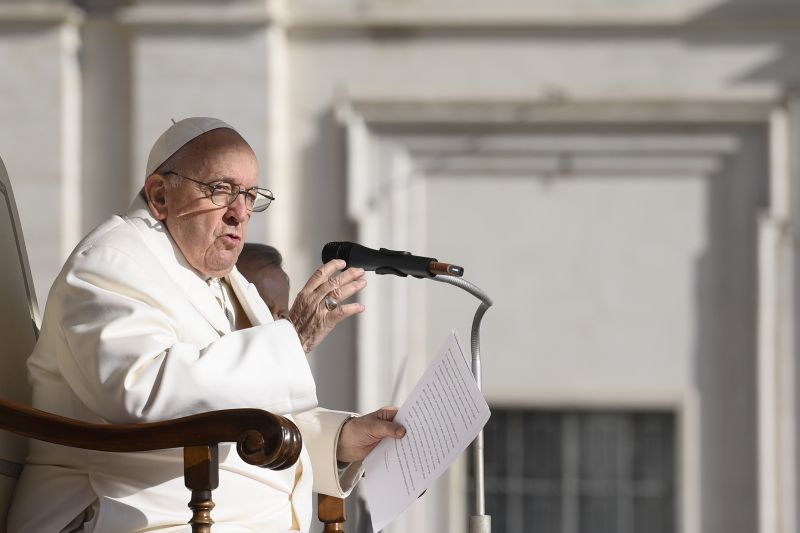
Vatican City, Jul 28, 2020 / 10:15 am (CNA).- The cardinal leading the Vatican’s congregation on consecrated life said Monday that contemplative religious communities are needed and will not disappear, even as more than 30 monasteries closed in Spain last year.
“Contemplative life is not destined to disappear, but must reflect with transparency the ideal of evangelical life of the founders that is at its base,” Cardinal João Braz de Aviz said in an interview published Monday.
“We need contemplative life as we need food and water to live,” he added, saying that “contemplative life, however, cannot be an island parallel to the life of the Church, but its treasure well integrated into its body.”
The prefect of the Congregation for Institutes of Consecrated Life and Societies of Apostolic Life said “the Church has received from the contemplative life throughout the centuries an authentic experience of the face of God and has learned to have a praying heart.”
The cardinal’s comments, in an interview with Spanish magazine Vida Nueva, came in response to a question about the closure of 32 monasteries last year in Spain, a country with a long history of contemplative religious orders.
Contemplative giants such as St. Teresa of Avila, St. John of the Cross, and St. Ignatius of Loyola were all from Spain.
Braz de Aviz said “the aging of consecrated life, especially in Europe, Oceania and North America, and the low presence of young people in it, is an evident sign of the decrease in vocations to consecrated life. Many institutes have become small or are disappearing.”
He added that the family was also suffering from “a crisis in their Christian witness.”
Braz de Aviz attributed the development of attitudes unfitting to religious communal life to gaps in formation.
“In many communities there has been little development of the awareness that for us the other is the presence of Jesus, and that, in the relationship with him loved in the other, we can guarantee his constant presence in the community,” he said.
The Brazilian cardinal also said that many consecrated men and women were trying to better identify the core charism of their community “to allow themselves to be guided by the wisdom of the Church in its current Magisterium…”
“This is a vital process that we believe is prompted by the Holy Spirit to enter with all humanity in this change of time in which Francis very carefully guides the entire Church,” he stated.
“Before any other reality, the Church is our common house, of all consecrated life, called now to walk together in their co-essentiality with the hierarchy,” he continued, emphasizing that “legacy training models are no longer sufficient for this.”
“The practice of many behaviors must change to assume an initial and continuous formation that is dynamic, because the Spirit that animates it is dynamic. Training cannot stop at a certain period of life. All life (from the womb to death) is a time of formation,” he emphasized.
In the interview, the Brazilian cardinal also spoke about the dynamic between male and female religious, and problems of leadership, condemning the “phenomenon of a consecrated life marked by too centralized authorities.”
Authority is service, he said, and not a “domain marked even with false spiritual motivations.”
“In many cases, the consecrated man-woman relationship presents an unhealthy system of relationships of submission and dominance that removes the sense of freedom and joy, a misunderstood obedience,” he argued.
Braz de Aviz said that the message he would send to consecrated men and women in Spain came from the words of Pope Francis, that they “are called to be men and women of encounter.”
“Whoever truly meets Jesus becomes a witness and makes the encounter possible for others,” he said.
If you value the news and views Catholic World Report provides, please consider donating to support our efforts. Your contribution will help us continue to make CWR available to all readers worldwide for free, without a subscription. Thank you for your generosity!
Click here for more information on donating to CWR. Click here to sign up for our newsletter.




In the good old days, genuine spirituality was generated in caves, huts, and even in a manger. God used to humbly visit his admirers in such joyful settings.
Christ has not ceased to call men and women to contemplative life and the active apostolate. The Church has ceased to provide opportunities to live out those vocations authentically. In all but a few quarters the classical expression of consecrated life has been replaced by a frat house/sorority model only to be replaced by the geriatric facility. There can not be a faithful engagement with a religious vocation when the orders, congregations and institutes are unsound theologically, underminded by the pestilence let loose in the post-conciliar era. Braz de Aviz is a blazing example of the infectious agent at work in the evisceration of religious life. “Cor Orans” is exhibit “A”.